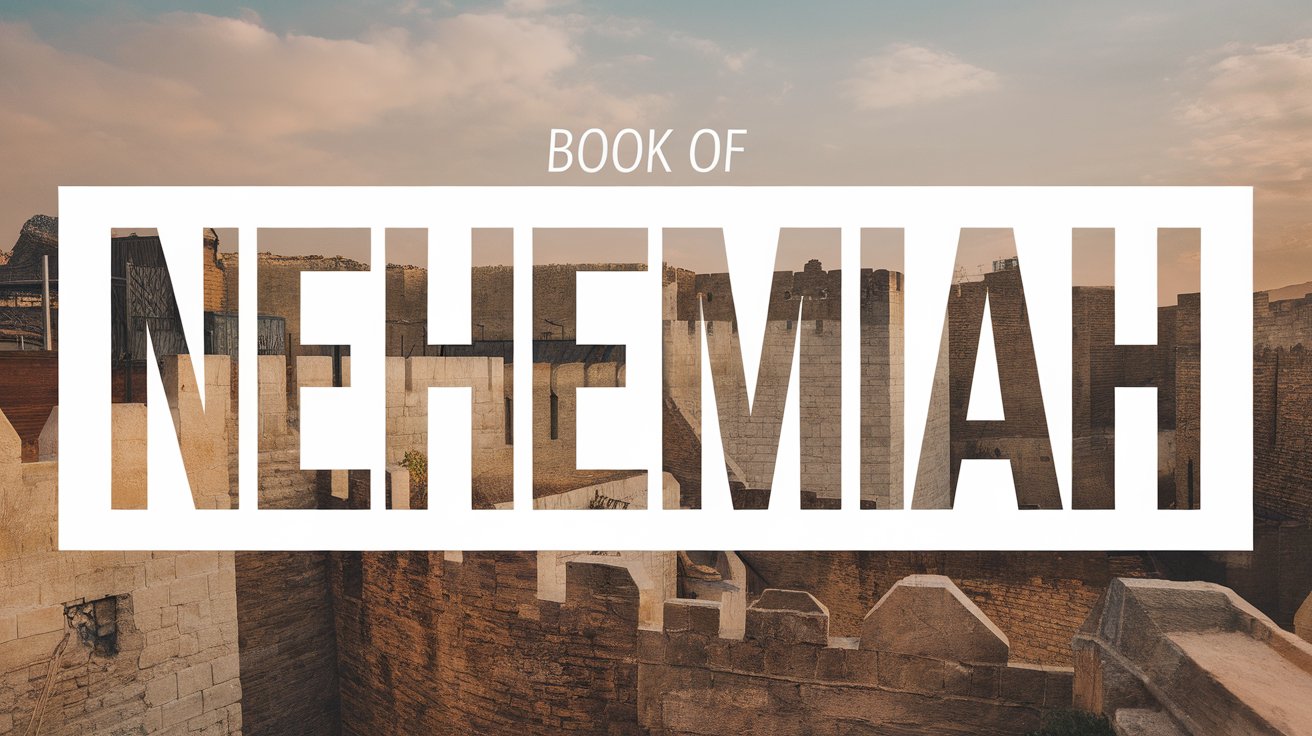When Promises Actually Matter
What’s Nehemiah 10 about?
After facing their failures head-on in Nehemiah 9, the people don’t just walk away feeling guilty—they roll up their sleeves and sign their names to a covenant that will reshape how they live. It’s the ancient equivalent of putting your money where your mouth is.
The Full Context
We’re witnessing one of history’s most remarkable turnarounds. After seventy years of exile in Babylon, the Jewish people have returned to a Jerusalem that’s more rubble than city. They’ve rebuilt the temple and now the walls, but Nehemiah 9 just delivered a brutal reality check: their ancestors’ covenant-breaking is what got them exiled in the first place. The weight of generational failure hangs heavy in the air.
But here’s what makes Nehemiah 10 so powerful—instead of drowning in despair, the people choose action. This isn’t just about feeling sorry; it’s about structural change. The leaders, Levites, and representatives of the people are literally putting their signatures on a binding agreement that will govern everything from marriage to money to Sabbath-keeping. They’re not just promising to be better; they’re creating systems to ensure they actually will be. It’s accountability in action, ancient style.
What the Ancient Words Tell Us
The opening verse uses a fascinating Hebrew construction: חתום (chatom), which means “sealed” or “signed.” But this isn’t just any signature—it’s the kind of legal seal that would hold up in court. When Nehemiah and the others “sealed” this covenant, they were using the same legal language you’d find in ancient Near Eastern treaties between kings.
Grammar Geeks
The word אמנה (amanah) in verse 1 is related to our word “Amen”—it means something firm, trustworthy, established. This isn’t a casual promise; it’s a rock-solid commitment built on the same root that gives us our confident “So be it!”
The list of names that follows isn’t just administrative paperwork—it’s a roll call of courage. These aren’t anonymous promises made in an emotional moment. Every single person who signs is saying, “Hold me accountable. My name is attached to this.” In a shame-honor culture, that’s putting your reputation on the line.
What Would the Original Audience Have Heard?
Picture yourself as an ordinary Jew in post-exilic Jerusalem. Your grandparents told you stories about the glory days of Solomon’s temple, but all you’ve known is occupation, exile, and now this fragile attempt at rebuilding. The city walls are finally up, but you’re surrounded by hostile neighbors who’d love to see you fail again.
Then this happens: your leaders don’t just preach about covenant faithfulness—they sign a public document promising specific, measurable changes. No more intermarriage with pagans. No more buying and selling on the Sabbath. Regular support for the temple that keeps your spiritual life centered.
Did You Know?
Ancient Near Eastern covenants often included specific curses for covenant-breakers. The people signing this agreement would have understood they were literally invoking divine judgment on themselves if they failed to keep their word.
For the original audience, this wasn’t just inspiring—it was revolutionary. Instead of the top-down commands they’d grown used to under foreign rulers, this was community-wide commitment to change from within.
Wrestling with the Text
But let’s be honest about something that jumps out: this covenant is incredibly detailed. We’re talking about tithing regulations, wood offerings, temple tax, firstfruits, and even how to handle the Sabbatical year. Why get so specific?
Here’s what I think is happening: they’ve learned that good intentions without clear boundaries are just wishful thinking. Their ancestors had the same basic covenant commitments, but without the specifics, those commitments gradually eroded. A little compromise here, a small exception there, and before you know it, you’re worshipping other gods and ignoring the Sabbath entirely.
Wait, That’s Strange…
Notice what’s not in this covenant? No promises about loving God with all their heart, or treating foreigners with kindness, or caring for orphans and widows. It’s almost entirely focused on ritual and ceremonial law. Is this legalism, or strategic wisdom?
The focus on external, measurable commitments might seem legalistic to modern readers, but I think it shows remarkable self-awareness. These people knew their own weaknesses. They’re not saying external compliance is all that matters—they’re saying it’s where faithfulness begins.
How This Changes Everything
Here’s what strikes me most about Nehemiah 10: it’s not trying to manufacture feelings or emotions. It’s not asking people to “try harder” or “be more spiritual.” Instead, it creates concrete systems that make faithfulness more likely and unfaithfulness more difficult.
Want to avoid compromising your faith? Don’t marry someone who doesn’t share it (verse 30). Want to keep the Sabbath holy? Make it economically costly to break it by refusing to buy from merchants who work on that day (verse 31). Want to keep the temple functioning? Set up automatic, regular giving that doesn’t depend on how generous you feel in the moment (verses 32-39).
This is discipleship through structure, faithfulness through systems. And it works because it acknowledges a hard truth: our hearts are willing, but our flesh is weak. We need more than good intentions; we need guardrails.
“Sometimes the most spiritual thing you can do is create systems that make it easier to be spiritual.”
The beauty of this approach is that it’s both realistic and hopeful. Realistic because it acknowledges human weakness and the power of social pressure. Hopeful because it believes change is actually possible when we’re willing to restructure our lives around our values rather than just hoping our values will somehow overcome our structures.
Key Takeaway
Real transformation happens when we stop relying on willpower alone and start building systems that align our daily choices with our deepest commitments. Nehemiah 10 shows us that sometimes the most spiritual thing we can do is get practical about how we want to live.
Further Reading
Internal Links:
- Nehemiah 9:1 – The power of honest confession
- Nehemiah 10:30 – Marriage and faith boundaries
- Nehemiah 10:31 – Sabbath economics
External Scholarly Resources:


